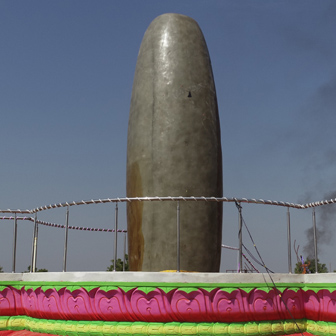Havan Ritual
Significance / Types / Benefits
Havan, often regarded as a fire ritual or sacred fire ceremony, holds great importance in Hinduism. It is a ritualistic practice where different offerings are submitted into a sacred fire for spiritual purification, invoking positive energies, harmonising the panchabhutas, and fostering a sense of unity and togetherness among people to seek spiritual growth collectively.
The presence of a qualified guru (a Siddhaguru) is deemed indispensable for the successful execution of havan ritual. The guru imparts spiritual wisdom, initiates disciples into specific mantras and practices, and offers ongoing guidance and support along the spiritual path.
Havan for Lord Shiva
Aham Hi Sarvayagnyanam Bhoktachaiva Phalapradaha
“Lord Shiva conveyed to Vashishta that he is the
receiver of all offerings presented to sacred fire during the havan ritual.”
Performing a havan specifically dedicated to Lord Shiva is a common practice in Hinduism. Lord Shiva is revered as the supreme deity who represents the bestower of ultimate liberation.
In the havan ritual, the Shiva’s form Lord Rudra is honoured as Yagneswara, Vishnu is revered as the form of Yagna, and Lord Indra is regarded as the performer of the Havan.
Specifically on Mahashivaratri, the havan ritual involves invoking the presence of Lord Shiva and seeking his blessings by offering various elements into the sacred fire.
This practice is coupled with the chanting of a variety of mantras devoted to Lord Shiva, following the traditions outlined in both Vedic and Tantric customs, with profound devotion and surrender.
Types of havan
Predominantly, there are two kinds of havans practiced today:
- Vedic Havan - Meaning and Significance
- Tantric Havan - Meaning and Significance
- Vedic and Tantric Havan - The Conclusion
Vedic havan refers to the performance of havan rituals according to the principles laid out in the Vedas, the ancient sacred texts of Hindu religion. The havan involves the recitation of Veda mantras and invoking Shiva and other deities associated with specific qualities and powers to bring blessings and auspiciousness.
The mantras chanted during havan are believed to carry spiritual vibrations and invoke the blessings of Shiva and other deities. Vedic havan is a sacred and profound spiritual practice that embodies the timeless wisdom and spirituality of the Vedas.
Vedic Havan serves as a means of connecting with Shiva, fostering spiritual growth, and invoking blessings for the well-being and prosperity of all beings. Additionally, Vedic havan is seen as a means of expressing devotion, gratitude, and reverence to the divine.
Tantric havan involves conducting havan rituals within the framework of Tantric science, an ancient spiritual tradition. Within Tantra, rituals such as havan are regarded as potent means for spiritual growth, healing, and achieving diverse objectives.
Tantric Havan emphasises interconnectivity with the universe through achieving divinity within. Tantric practices aim to harness and channel spiritual energies for spiritual and material growth.
Tantric havan often involves the recitation of specific mantras (beejakshara mantras) to invoke divine energies and establish a sacred space. These mantras are believed to have potent positive spiritual vibrations that aid in the transformation of divine consciousness.
Practitioners of tantric havan will engage in meditation to deepen their connection with the divine consciousness and positive energies invoked during the ritual. Consistent engagement in this practice can lead practitioners to encounter heightened levels of consciousness, enhanced awareness, and a more profound communion with the divine.
Overall, Vedic havan and Tantric havan are collectively considered sacred and profound spiritual practices that embody timeless wisdom and spirituality. Embracing Vedic and Tantric havans demands sincerity, reverence, and a willingness to surrender to the divine forces orchestrating its course, mirroring the approach required for any spiritual pursuit. The key aspect is the realisation of one's innate divine essence.


